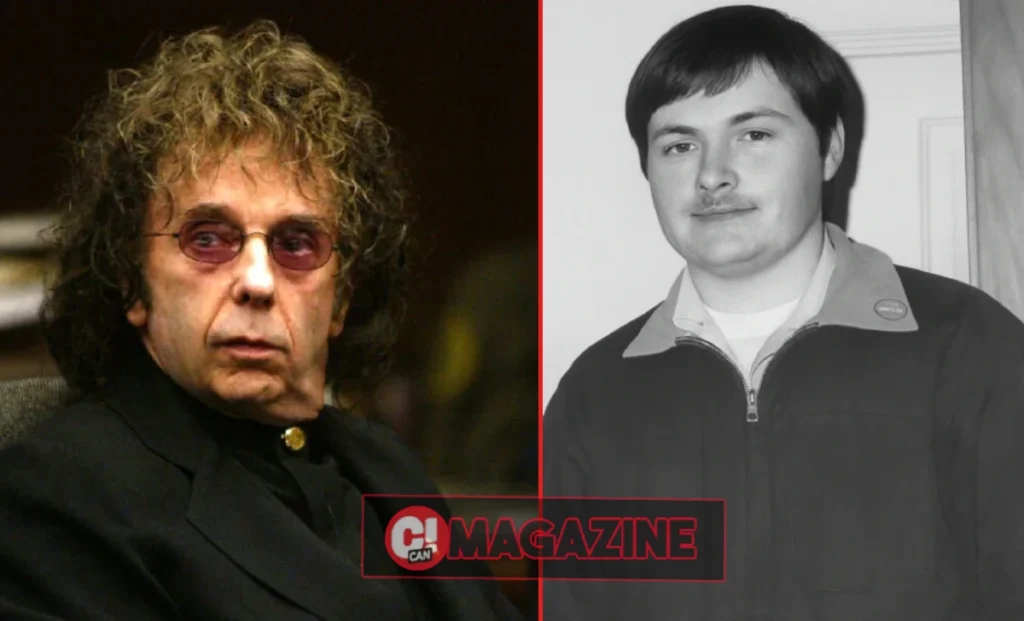Gary Phillip Spector, born May 12, 1966, is the adopted son of music producer Phil Spector and Ronettes singer Ronnie Spector. Adopted at age five alongside his twin, Louis, in 1971, Gary chose a private life as a technician and driver in Colorado Springs, deliberately stepping away from his parents’ fame and the music industry.
Most people searching for information about famous families expect glamour, wealth, and continued celebrity. Gary Phillip Spector’s story offers something different: a deliberate choice to live quietly despite being connected to one of music’s most controversial figures. Born May 12, 1966, in Los Angeles, Gary was adopted by Phil and Ronnie Spector in 1971 when he was five years old, entering a household that would soon become synonymous with both musical brilliance and personal turmoil.
This article explores how Gary built a life defined by privacy, stability, and independence—revealing what happens when you choose normalcy over notoriety.
The Unexpected Adoption That Changed Everything
Gary and his twin brother Louis were adopted by Phil and Ronnie Spector as a surprise Christmas gift in 1971, reportedly without Ronnie’s full knowledge. This unconventional beginning set the tone for a childhood marked by complexity.
The circumstances surrounding the adoption remain largely private. The identities of Gary’s biological parents have never been publicly disclosed, adding another layer to his quest for identity within an already complicated family structure.
Adoption practices in the early 1970s differed significantly from today’s standards. Court approval was less rigorous, home studies were minimal, and celebrity status often expedited processes. This context helps explain how such a significant family decision could occur with limited transparency—even between spouses.
For Gary, this meant entering a world where privacy was already compromised before he could understand what privacy meant.
Growing Up Spector: Fame’s Hidden Cost
Phil Spector, born in 1939, created the “Wall of Sound” production technique and produced numerous hit records during the 1960s. His professional genius, however, came with a dark personal side.
Gary and his brother reportedly stated their father “kept them captive” as children, with Gary describing being “blindfolded and sexually molested” in what Phil called “learning experiences”. These disturbing revelations, made public years later, explain why Gary sought distance from his childhood home.
Ronnie Spector, born Veronica Yvette Bennett in 1943, was the lead singer of The Ronettes, famous for “Be My Baby”. In her 1990 memoir, Ronnie alleged Phil imprisoned her in their California mansion and subjected her to years of psychological torment.
The children witnessed this dysfunction firsthand. When your home life involves watching one parent control another while struggling with your own mistreatment, the appeal of a quiet, controlled adult life becomes understandable.
Building a Life Outside the Shadow
Gary attended Fairfax High School before studying Computer Information Systems and Computer Science at Colorado Technical University. His educational choices reflect a practical mindset—skills that translate to stable employment rather than unpredictable creative careers.
His professional path as a technician and driver might seem modest compared to his father’s estimated $50 million fortune. But this choice represents something more valuable: autonomy. Gary selected work that provides a steady income without requiring him to trade on his family name or engage with media attention.
This career trajectory offers lessons for anyone trying to establish independence from family expectations. Sometimes the boldest choice isn’t climbing higher—it’s stepping off the ladder entirely.
The Privacy Decision
Gary married Julia Spector on March 12, 2018, in an intimate ceremony. Together, they have a daughter named Amy and live in Colorado Springs, Colorado. He maintains no public social media presence and rarely appears in photographs or interviews.
This level of privacy requires active effort in 2025. It means declining interview requests, avoiding events where photographers might be present, and potentially using legal measures to prevent unauthorized use of his image. For someone connected to a family constantly pursued by the media, this represents a full-time commitment to boundaries.
The move to Colorado Springs—far from Los Angeles, New York, or other entertainment hubs—creates physical distance that reinforces his psychological boundaries. Geographic relocation can be one of the most effective ways to separate yourself from an identity you didn’t choose.
The Broader Spector Family
Gary’s siblings took varied paths. His twin, Louis Phillip Specto,r is known as an artist and writer, pursuing creative interests. Sister Nicole Audrey Spector works as a writer and editor. Brother Phillip Spector Jr. died of leukemia in 1991 at age nine, a tragedy that deeply affected the family.
Brother Donte Phillip Spector was adopted before Gary and Louis and has similarly maintained a low profile. Ronnie later had biological sons Jason Charles and Austin Drew Greenfield with her second husband, Jonathan Greenfield.
Each sibling’s response to their shared history differs, demonstrating that there’s no single “right way” to process growing up in a high-profile, troubled household. Some engage creatively with their experiences. Others, like Gary, choose complete separation.
When Fame Becomes Infamy
Phil Spector was convicted of murdering actress Lana Clarkson in 2009 and sentenced to 19 years to life in prison. He died in 2021 while serving his sentence. Ronnie Spector passed away in January 2022.
These events brought renewed media attention to the family. True crime documentaries, news coverage, and social media discussions meant that Gary’s decision to remain private became even more challenging. The internet doesn’t forget, and algorithms ensure that old family photos and stories resurface with each new development.
For children of notorious figures, this creates a perpetual challenge. You can’t control what’s written about your family, but you can control whether you contribute to the narrative. Gary’s continued silence speaks volumes about his commitment to living on his own terms.
What Gary’s Story Teaches Us
Gary Phillip Spector’s life offers several insights for anyone dealing with unwanted public attention or trying to establish an identity separate from family legacy:
Boundaries require consistency. Privacy isn’t achieved through occasional avoidance—it demands continuous vigilance about what information you share and with whom.
Geographic distance helps. Physical separation from environments connected to your past can make emotional separation easier.
Career independence matters. Choosing work unrelated to family industries provides both financial and psychological autonomy.
You’re not obligated to engage. Just because people are curious doesn’t mean you owe them answers, interviews, or explanations.
Healing happens privately. Not every personal journey needs public documentation or social media updates.
The Current Picture
At 59 years old, Gary continues living quietly in Colorado Springs with his wife and daughter. Little public information exists about his daily life, hobbies, or community involvement—exactly as he prefers.
His net worth remains undisclosed, but his modest profession suggests financial comfort rather than wealth accumulation. This aligns with someone who prioritizes peace over prosperity, stability over status.
In an age where personal branding and online presence feel mandatory, Gary represents an alternative: the deliberate choice to opt out. His absence from digital platforms isn’t due to technological inability—he studied computer science—but a conscious decision.
Understanding the Bigger Picture
The Spector family story intersects with broader conversations about children’s rights, domestic abuse, celebrity accountability, and the music industry’s enabling of harmful behavior. Phil Spector is widely regarded as one of the most influential figures in pop music history, yet his personal conduct caused immeasurable harm.
Gary’s choice to remain separate from his father’s legacy doesn’t erase what happened, but it demonstrates that children aren’t responsible for their parents’ actions. You can acknowledge where you come from without letting it define where you go.
For readers dealing with complicated family histories—whether involving fame, dysfunction, or both—Gary’s approach offers validation. Sometimes the healthiest response isn’t confrontation or public processing. Sometimes it’s simply walking away and building something different.
Moving Forward
Gary’s story reminds us that every individual, regardless of family background, deserves respect and the right to privacy. His life proves that you can be connected to major historical events and cultural moments without becoming a public figure yourself.
As media attention on celebrity families continues intensifying, Gary Phillip Spector stands as a quiet counterpoint—someone who refused to let his family’s story become his own. His success isn’t measured in album sales, media appearances, or social media followers. It’s measured in the peaceful life he’s built for himself and his family, away from cameras and questions.
Final Thoughts
Gary Phillip Spector’s biography won’t dominate headlines. His accomplishments won’t earn industry awards. But his story demonstrates something equally important: the strength required to choose privacy in a world that demands exposure, and the courage to define success on your own terms rather than accepting definitions imposed by family legacy.
For anyone struggling with unwanted attention, complicated family dynamics, or the pressure to perform a public identity, Gary’s approach offers a roadmap. Sometimes the most powerful choice isn’t speaking louder—it’s choosing when to remain silent.
For more captivating stories about sports legends and their remarkable journeys, explore CanMagazine—where athletic history comes alive and inspiring careers unfold.







